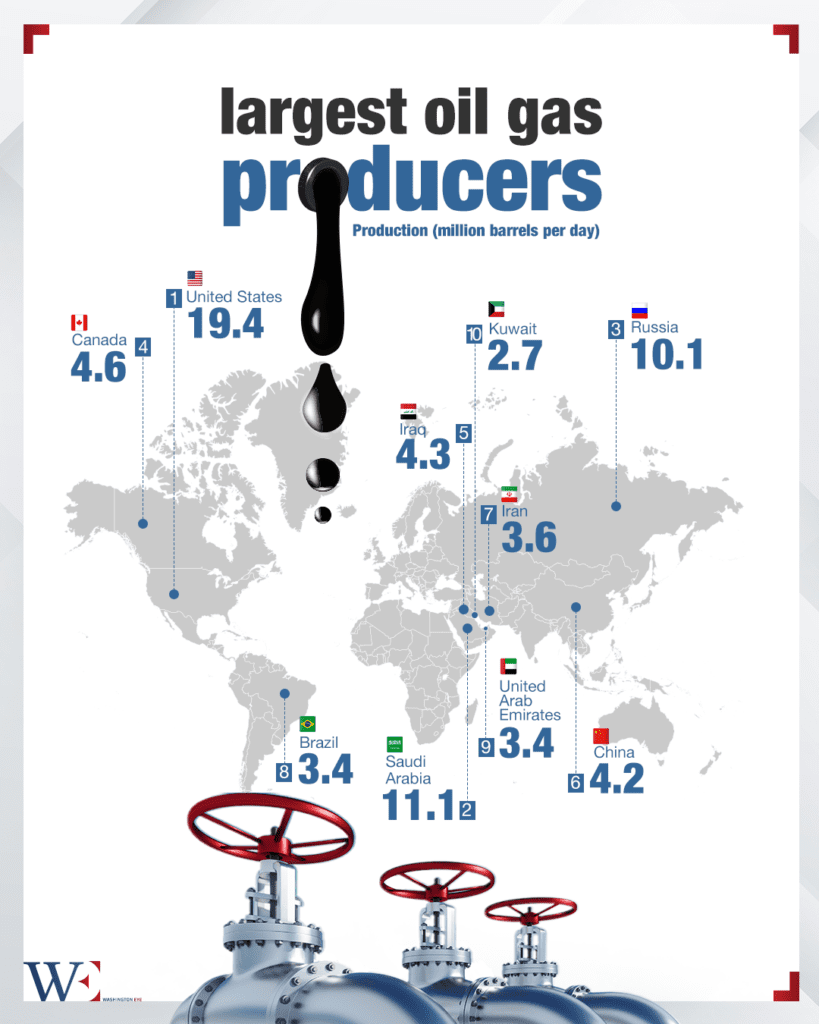In a move set to stir significant political and economic debate, former President Donald Trump announced plans to declare a national energy emergency, should he return to the White House. This declaration, aimed at expanding presidential powers, underscores his vision of a reinvigorated domestic energy policy designed to counter what he perceives as threats to American energy independence. Trump, addressing a crowd in Des Moines, Iowa, on Saturday, stated his intent to issue the declaration within days of regaining office. “We’re going to take back control of our energy future,” he proclaimed. “The radical policies of the left have left us weak, dependent, and at the mercy of foreign powers. That ends under my administration.”
The proposed emergency declaration seeks to bypass traditional legislative constraints, granting the president broader authority to accelerate energy projects, suspend certain environmental regulations, and potentially restrict foreign energy imports. Critics argue that such a move could lead to overreach and exacerbate climate concerns, while supporters hail it as a necessary step to prioritize U.S. energy dominance.
A Bold Agenda
Trump’s plan reflects his administration’s energy-first ethos during his initial term, which included withdrawing from the Paris Climate Agreement and rolling back Obama-era environmental regulations. The proposed emergency powers would likely enable expedited approval of oil and gas drilling projects, reopening federal lands for energy extraction, and revitalizing coal operations. The focus, Trump claims, is to reduce energy costs for Americans and create jobs in traditional energy sectors. “We have the resources, we have the technology, and we have the will,” Trump said during his address. “What we don’t have is time to waste on bureaucratic red tape while our enemies laugh at us.”
The declaration may also include measures to incentivize investments in U.S.-based energy infrastructure, such as pipelines and refineries while curtailing reliance on renewable energy mandates. Trump’s rhetoric suggests a stark contrast to the Biden administration’s focus on green energy initiatives and climate goals.
Declaring a national energy emergency would be unprecedented, raising significant constitutional questions. Legal experts warn that such an action could face challenges in the courts, particularly regarding the scope of presidential authority under emergency declarations.
“While the National Emergencies Act provides the president with broad discretion, it is not a blank check,” said Laura Jenkins, a constitutional law professor at Georgetown University. “The courts will scrutinize whether an energy emergency meets the legal threshold and whether the president’s actions are proportional.”
The political fallout is expected to be equally contentious. Democratic leaders have already denounced the proposal as a “power grab” designed to benefit fossil fuel interests at the expense of environmental sustainability and climate action.
“This isn’t about energy security. It’s about dismantling decades of progress to combat the climate crisis,” said Senate Majority Leader Chuck Schumer in a statement. “We won’t stand idly by while the future of our planet is sold to the highest bidder.”
Conversely, Republican allies have rallied behind Trump, framing the move as a necessary corrective to what they describe as the Biden administration’s “war on American energy.”
“President Trump is putting America first again,” said Rep. Jim Jordan (R-Ohio). “This declaration will restore our energy independence, lower costs for families, and create jobs in communities across the country.”
The economic implications of Trump’s energy plan are profound. Supporters argue that the proposed measures will reduce energy costs, boost domestic production, and insulate the U.S. economy from geopolitical shocks. They cite rising energy prices and inflation as evidence of the need for immediate action.
However, economists caution that prioritizing fossil fuels over renewable energy could have long-term consequences.
“A short-term focus on traditional energy sources may provide temporary relief, but it risks delaying the necessary transition to sustainable energy systems,” said Dr. Alan Rivera, an energy economist at Stanford University. “This could leave the U.S. vulnerable to future economic and environmental shocks.”
Additionally, the potential rollback of environmental protections has sparked concern among climate advocates. They warn that increased emissions from expanded fossil fuel projects could exacerbate global warming and undermine international climate commitments.
Trump’s proposed policy shift could have far-reaching implications for global energy markets. Analysts predict that a resurgence of U.S. fossil fuel production could disrupt oil prices and strain relations with countries reliant on energy exports, including key OPEC members and Russia. Moreover, the move could undermine international climate agreements, such as the Paris Accord, which the Biden administration rejoined in 2021. European allies, already wary of Trump’s unilateral approach to foreign policy, may view the declaration as a step back from global cooperation on climate issues.
What’s Next?
As Trump continues to solidify his campaign platform, the proposed national energy emergency is poised to be a defining issue in the 2024 presidential race. With the stakes high for both the economy and the environment, the debate over America’s energy future will likely dominate headlines in the months to come. While Trump’s supporters view the plan as a bold step to reclaim American energy independence, his critics see it as a dangerous gamble with the planet’s future. As the nation waits to see whether Trump’s vision becomes reality, one thing is clear: the battle over energy policy is far from over.















